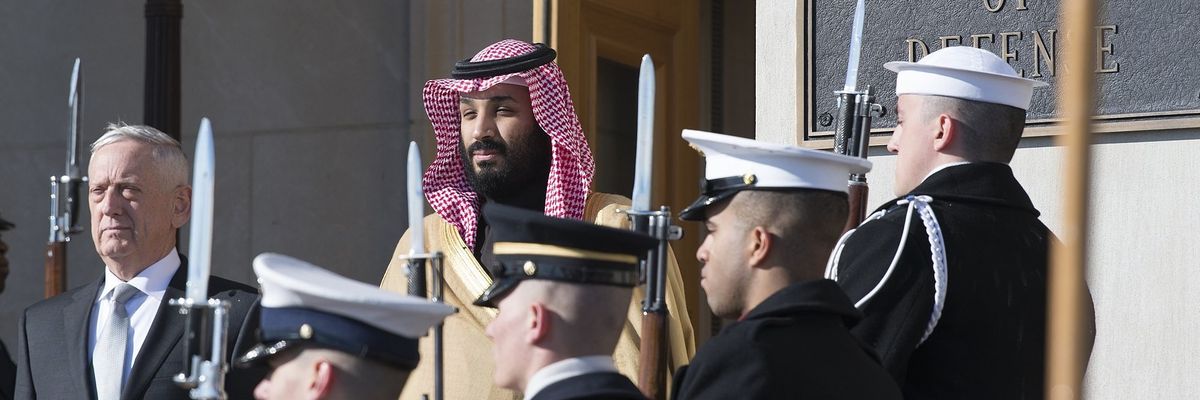Four of the 15 Saudis involved in the killing of Saudi journalist Jamal Khashoggi received training in the United States, according to the New York Times. The story highlights the depth of the U.S.-Saudi relationship, the critique of which has simmered following Khashoggi’s grisly murder and dismemberment in October 2018.
Tier 1 Group, the security company that conducted the training of the four Saudi men, has stressed that the instruction they received had no relation to the acts of brutal violence they carried out against Khashoggi. Instead, the training was defensive in nature, intended to “counter an attack” ostensibly against a high profile individual. This reiterates the link to Mohamed bin Salman, as members of MBS’ personal protection squad carried out the killing, although the Saudis continue to deny the Crown Prince’s responsibility in ordering the murder.
Yet the revelation also underscores the fact that the problems underpinning the U.S.-Saudi relationship predate the Trump White House, as well as Mohammed bin Salman’s tenure as crown prince. The four Saudis were trained in 2017, but two also received training between 2014 and 2015, while Obama was president, and King Abdullah was still on the Saudi throne. The question emerges as to why Saudi operatives receive training in the United States at all?
The military partnership between the U.S. and Saudi Arabia reflects the countries’ 75-year-long relationship. Historically, Washington had to overcome the mismatch between Saudi policy and values that the United States claimed to uphold — democracy, individual liberty, gender equality, freedom of expression — because of American dependence on Saudi oil. Yet the United States surpassed Saudi Arabia as the world’s largest exporter of oil in 2019; instead the majority of Saudi fossil fuels now travel eastwards to Asian markets. Although the global economy remains dependent on fossil fuels, U.S. willingness to ignore Saudi abuses and crimes can no longer be explained by America’s addiction to Saudi oil.
Instead, it is the American military industrial complex that remains dependent on Saudi Arabia as a wealthy and valued customer. Although the Trump administration increased the sale of U.S. weapons by 23 percent, many of them to Saudi Arabia, the Obama administration sold vast quantities of weapons to the Saudis as well. The Biden administration, after initially committing to end the sale of offensive weapons that could be used to attack Yemen, has allowed certain sales to proceed.
At the time of Khashoggi’s murder, Congress denounced the Trump administration’s close partnership with the Saudis, even passing an historic War Powers Resolution, which Trump vetoed. Yet since Biden’s ascension to power, perhaps because Biden himself initially signaled that he would be tough on the Saudis, critique of the relationship has been more muted. Members needn't have worried: the Biden administration also has deep ties to the defense industry.
As long as the United States merely pays lip service to the preservation of human rights, or only points out abuses by U.S. adversaries while ignoring the crimes of U.S. partners, Biden's efforts to restore America's moral authority will fail. The Biden administration should suspend all arms sales to Saudi Arabia and drastically reduce its military partnership with the House of Saud. Until that occurs, Americans should prepare for more embarrassing revelations about the depth of the U.S.-Saudi relationship.
















